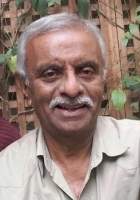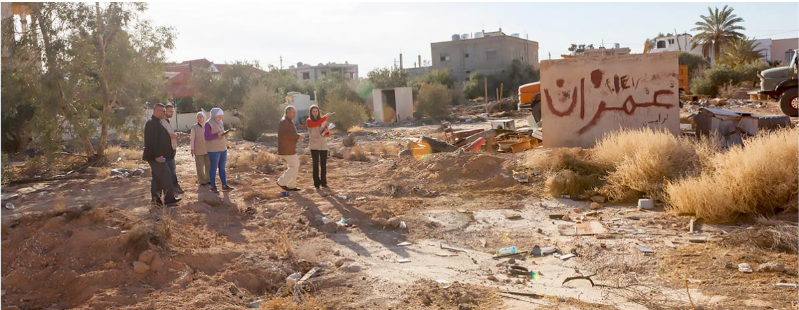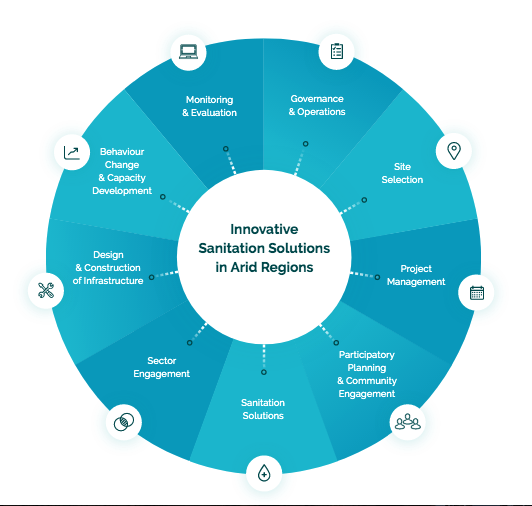- Forum
- categories
- Attitudes and behaviours
- Capacity development
- Sanitation Project Implementation - a key tool that provides you as a practitioner with critical considerations and learnings (SSWM website)
Sanitation Project Implementation - a key tool that provides you as a practitioner with critical considerations and learnings (SSWM website)
5878 views
- paresh
-

- Moderator
- Budding WASH researcher, especially interested in governance, public policy, finance, politics and social justice. Architect, Urban & Regional planner by training, Ex. C-WAS, India.I am a patient person :)
Less- Posts: 383
- Karma: 7
- Likes received: 143
Re: Sanitation Project Implementation - a key tool that provides you as a practitioner with critical considerations and learnings (SSWM website)
I really like the fact that all resources explicitly mention the need to engage with local experts. This is totally in line with the other discussion thread regarding decolonising WASH sector knowledge. I would be curious to know the level of engagement of the local knowledge in the projects implemented.
I have a comment regarding content on factsheet for ' community engagement and communication '. One of the sub-headings reads 'De-politicize the project', the content under which reads:
To me, this sounds like engaging the major political players rather than depoliticizing the process which is in alignment with recent thinking in international cooperation. I am assuming the Committee will be actively involved the decision making process even if based on suggestions and technical analysis presented by international consultants.Given local political dynamics, it can present a risk to link the project to a single local administrative/governmental structure: Opposition groups may decide to reject the project with the intention of preventing other political leaders or parties from accepting it, or strengthening their own grip on their current position.
Therefore, establishing and formalising a Local Project Committee consisting of representatives from a wide range of stakeholders can help engage different interest groups such as political parties and the community at large. We learned the importance of formalising the committee to carry the mandate of the community.
Throughout the project implementation, it is necessary to engage the next higher level of administration (district, governorate or national level) to ‘de-politicize’ the project as well as keeping them involved in the progress.
The term 'de-politicizing' has very different connotations; the rational planning approach for example is criticised for suggesting decision-making based on expert advice alone thereby depoliticizing the process.
Regards
paresh
Moderator, SuSanA forum
Project Manager at ADCPS
Indian Institute of Technology - Bombay, India
Please Log in to join the conversation.
You need to login to reply- AjitSeshadri
-

- Marine Chief Engineer by profession (1971- present) and at present Faculty in Marine Engg. Deptt. Vels University, Chennai, India. Also proficient in giving Environmental solutions , Designation- Prof. Ajit Seshadri, Head- Environment, The Vigyan Vijay Foundation, NGO, New Delhi, INDIA , Consultant located at present at Chennai, India
Re: Sanitation Project Implementation - a key tool that provides you as a practitioner with critical considerations and learnings (SSWM website)
The details given by you as Fact sheet for SSProjects, is very informative, ideal to be followed for sustenance of thse projects.
We also do carry out similar SSprojects in communities.
It is best to have them as CBMs ie Community Business Mechanisms ie even a small turn over project is done on sustained mode when it gives commercial returns.
Another point to note is that all produces to be compliant and safe and secure as per standards.
The facility established ought to be aesthetically pleasant and appealing with greens and some florals if it can be included.
We seek valued comments from SuSana Members.
Well wishes.
Prof Ajit Seshadri.
The Vigyan Vijay Foundation. Delhi. NGO since 2001 ..
Head-Environment , VigyanVijay Foundation, Consultant (Water shed Mngmnt, WWT, WASH, others)Located at present at Chennai, India
Please Log in to join the conversation.
You need to login to reply- coracraigmile
-
Topic AuthorLess
- Posts: 1
- Likes received: 1
Sanitation Project Implementation - a key tool that provides you as a practitioner with critical considerations and learnings (SSWM website)
It is made up of several sections and factsheets, each tackling a specific topic and providing practical advice based on expertise and real-life experience!
Find out more by going on sswm.info/perspective/sanitation-project-implementation
What can you expect to find in a factsheet?
Example factsheet:
Treated Wastewater and Faecal Sludge Reuse Concepts
This chapter describes the lessons we learned about the reuse of TWW and biosolids in the Innovative Sanitation Solutions and Reuse in Arid Regions (ISSRAR) project in Al Azraq (Jordan). Apart from ensuring improved wastewater and faecal sludge treatment, a key aim of ISSRAR is to turn waste streams into physical and financial resource streams, thereby promoting safe reuse practices. Such recovery of resources is part of a circular and sustainable sanitation approach, generating added value for the population while protecting human and ecological health.
What really matters: Key lessons learned and recommendations
- Consider the difference between reusing treated wastewater and reusing faecal sludge
- Account for reuse at all phases, from the inception phase to full-scale operation
- Recognize that reuse concepts are bound by their political and social acceptance
- Keep political stakeholders engaged from day one (take into consideration future plans: land use, investment potential, and technical capacity)
- Select reuse partners and manage competing interests in TWW reuse
- Explore feasible reuse options with an open mind
- Present a new case for treated FS reuse to assist advocacy towards regulations amendments
- Inter-team project coordination for identification of reuse concepts and implementation
Want to learn more? Visit the perspective by clicking here!
Attachments:
-
 Issrar_2020-07-28.png
(Filesize: 509KB)
Issrar_2020-07-28.png
(Filesize: 509KB)
Please Log in to join the conversation.
You need to login to reply- Forum
- categories
- Attitudes and behaviours
- Capacity development
- Sanitation Project Implementation - a key tool that provides you as a practitioner with critical considerations and learnings (SSWM website)








